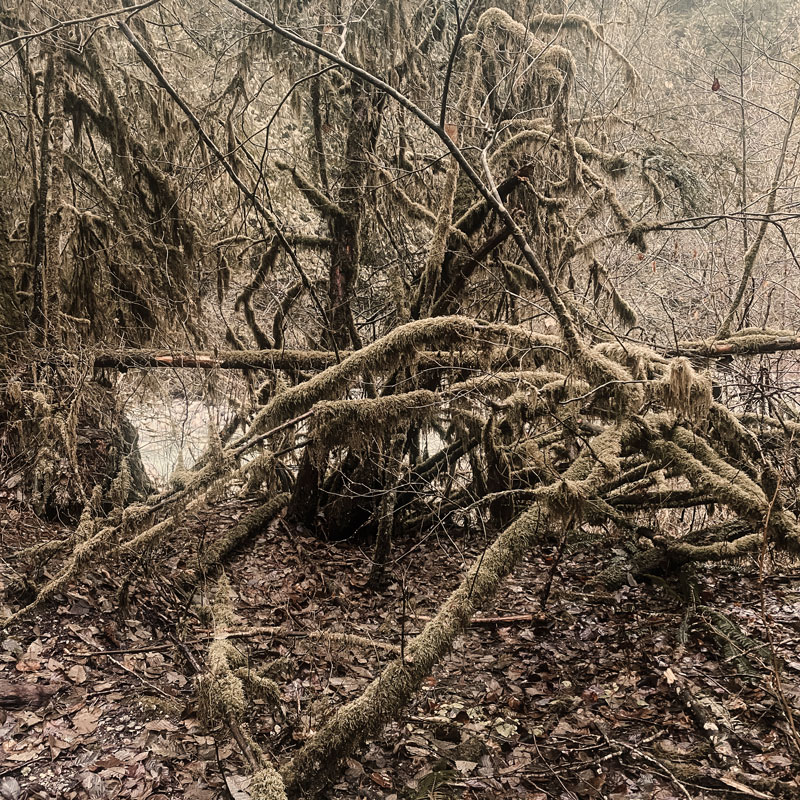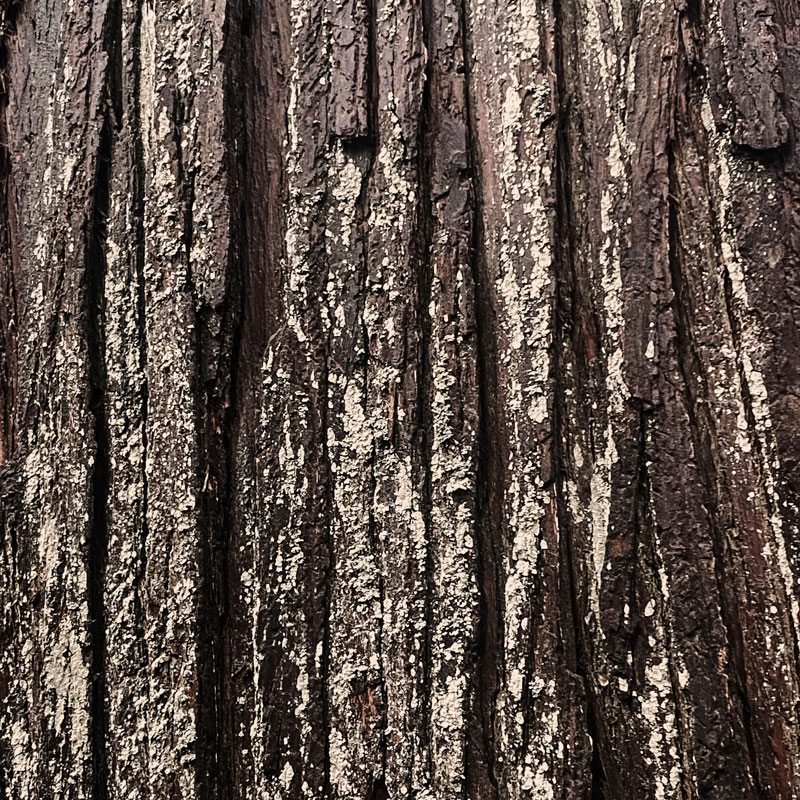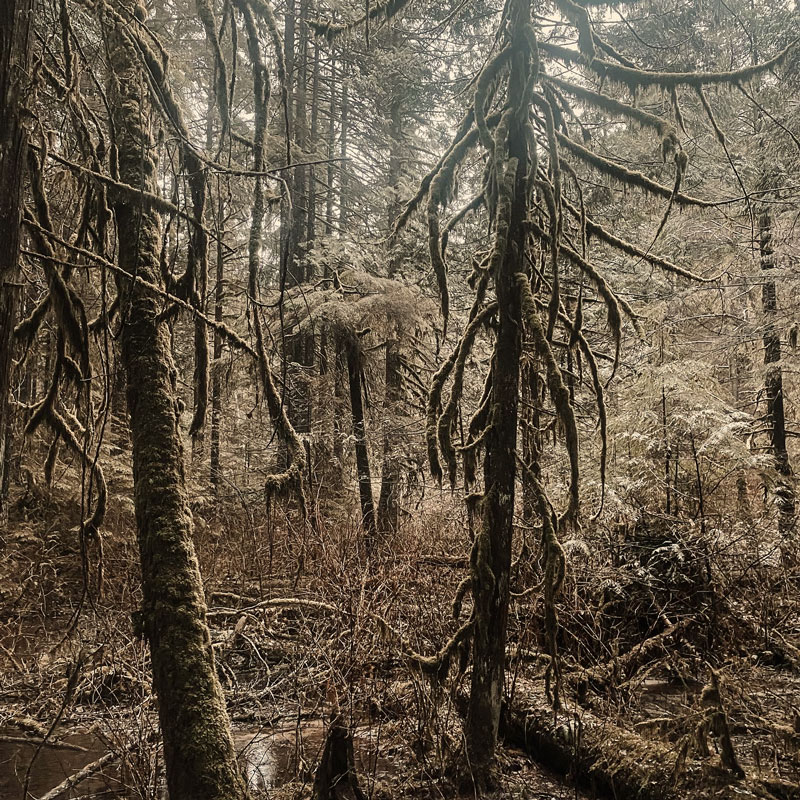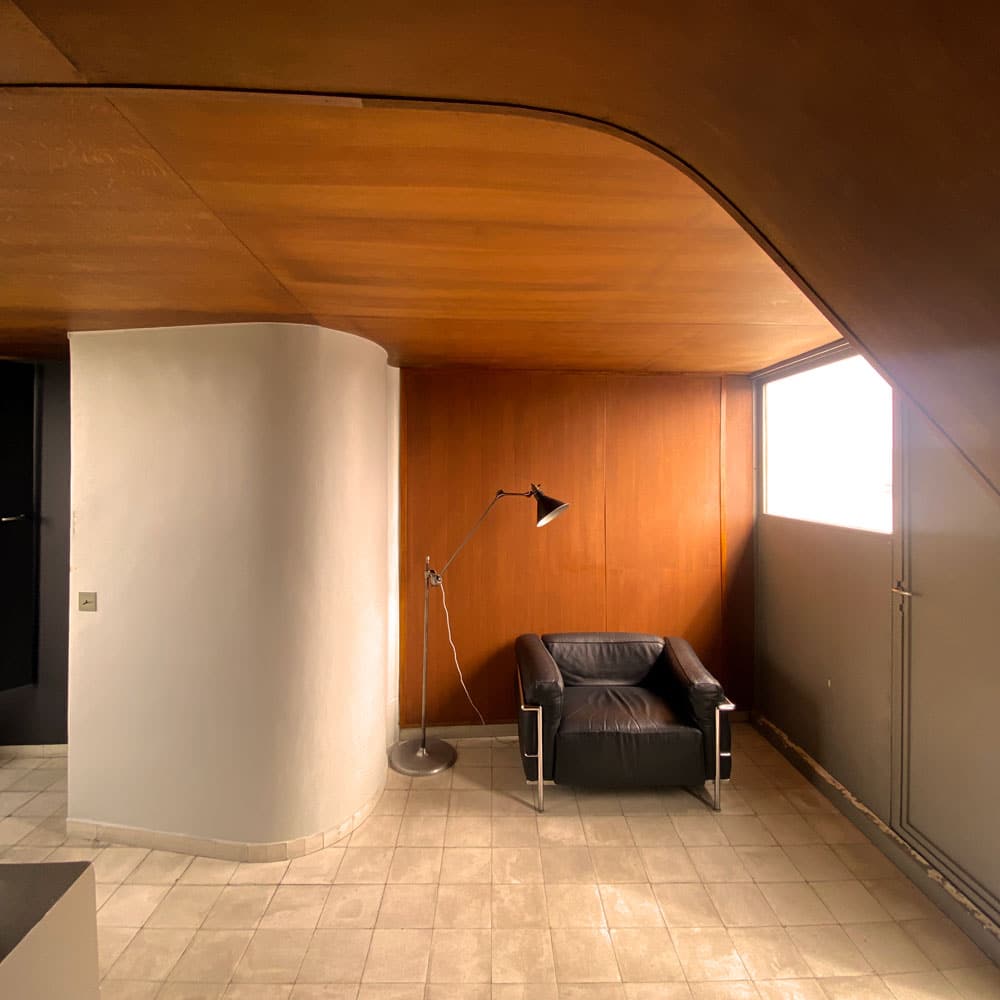Cannot See the Woods But for the Trees
An ash I know there stands,
Yggdrasill is its name,
a tall tree, showered
with shining loam.
From there come the dews
that drop in the valleys.
It stands forever green over

Poetic Edda, Völuspá
It was a winter day, much like any other. The sun shone down, illuminating the scrub that managed to wind its way through the thin brush of snow upon the ground. He emerged from his house and looked around. All was clear, far and wide, and he wiped a hand across his brow. Satisfied. Sated. The small house sat alone, upon an isolated estate, with no other structure in sight. The man had lived there for only three short months but had spent each and every day honing it, in every conceivable way. Floorboards were replaced and the darkest and sootiest of greys painted. The walls were scrubbed clean, and heavy linen curtains hung from blackened rods on the eight small windows. The furniture was neatly assembled around the fire, wrapped in coarse tweeds and draped with the softest of cashmere throws to keep the bitter cold out. The bedroom held only a single metal bed and a solitary chair in the corner, angled ever so slightly so that its occupant could enjoy the view of the expanse, whilst pulling on woolen stockings and other layers to keep out the chill. The kitchen, tucked in the corner, was gleaming chalk white, with only a small countertop, holding two porcelain cups, a small stack of plates, a loaf of black rye bread and a wedge of cheddar, wrapped in thick, waxy paper. A sheaf of catkins was set off to one side, tied with a simple loop of yarn. The table was wiped clean of any crumbs and held only a tiny brass vessel with a single thistle emerging on its woody stem, a reminder of the past summer, and the one to come.
Against the rubber tongues of cows and the hoeing hands of men
Thistles spike the summer air
And crackle open under a blue-black pressure.
Every one a revengeful burst
Of resurrection, a grasped fistful
Of splintered weapons and Icelandic frost thrust up
From the underground stain of a decayed Viking.
They are like pale hair and the gutturals of dialects.
Every one manages a plume of blood.
Then they grow grey like men.
Mown down, it is a feud. Their sons appear
Stiff with weapons, fighting back over the same ground.

Thistle, Ted Hughes
But now, it was winter. And, the man had to venture into the village to stock up on food to sustain him through the coming months. His thoughts wandered to roasts, stuffed with garlic and crocks of stews filled with potatoes, turnip and onion, laden with pepper, dill and cream. He looked out across the fields, toward a blackened thicket and beyond, and set off in a determined march. Toward the wood! he proclaimed to none other than himself. He trudged along for what seemed like hours, his sturdy boots crunching and crackling over the scrubby topography. Strange how it is always further than what it first seems, but, eventually, the incessant ticking of the clock, the mewing of the cat, and the constant whistle of the kettle, all but dissipate as he nears. The bare branches, encumbered with blackened seeds, bend and beckon him closer, like a myriad of gnarled and twisted fingers. He stands upon the edge of the sulking timbers, hesitant at first, as if he were on the precipice of the gallows of some fallen monarchical assemblage. He tentatively advances with a steady footfall, forging his own path, a forest-floor strewn with acorns rotted by the season. Long, stiff-pointed needles and parchment leaves were there, sapped of all life, their veins, still and listless.
The woods are a strange place. Being in the midst of their clutch symbolise a sort of foreboding and apprehension. The pine, sycamore and oak reach upward like thousands of rangy arms trying to block out the light of day. The ash and willow lean down, impeding the way of unwelcome visitors. Fallen limbs and stumps further this hindrance, like random unmarked gravestones, and shivering and groaning, the trees themselves yearn to keep one in their grasp, relieving drudgery and maintaining their own existence by rebuilding themselves over and over and over again. Through season upon season, the density of their patterns only thicken, and like a chokehold, they ruthlessly close ever so tightly, over all creatures that pass through.
The man paused for a spell, craning to see the sky through the web of tangled branches. He leaned upon a mighty oak, his hand running over the roughness of the lacerated bark, feeling every wound and imperfection of its lifetime. He dropped to the ground amidst the leaves and acorns, putting several in his hands and feeling their tough, leathery shells, as well as the pinhole sized nubbins of their perfectly formed caps, their inner smoothness. He ran his hands further along the ground, collecting and sorting— the wings of gall wasps, crumbled lichen in shades of green, yellow and an orange as vivid as the setting sun, decomposing roots and tendons and buds and seeds and all other diverse forms of coarse and woody debris. The ground was spongey of moss and cold, yet his mind wandered to the mulch below, blanketing the wood with scatterings of its own. He closed his eyes, and when he awoke, the sun had moved on, and the massive limbs above swayed and hushed and heaved, masquing away the light of the moon, the branches, unadorned, fabricating an inky black labyrinth against the pitch. He tried to stand, but the whispers of the woods cloaked him in their breath, and he burrowed himself deeper amongst the leaves and the needles, the twigs and the fallen bark.
Day turned into night, night turned into day and the redundancy of time took hold. He grew old, and I could no longer bear to watch him. What strength he had fell from his mortal bones to nourish the wood. The last sight his fading eyes held before slipping first into milky white, then to black, was the trees. Even my kind are not immune to pathos, and so I walked out of the wood, away from the trees that defined for me an ethos and for him a prison. It took only four steps— the coppice was only big enough for he. And for I.
Plentie is no deinte, ye see not your owne ease. I see, ye can not see the wood for trees.




